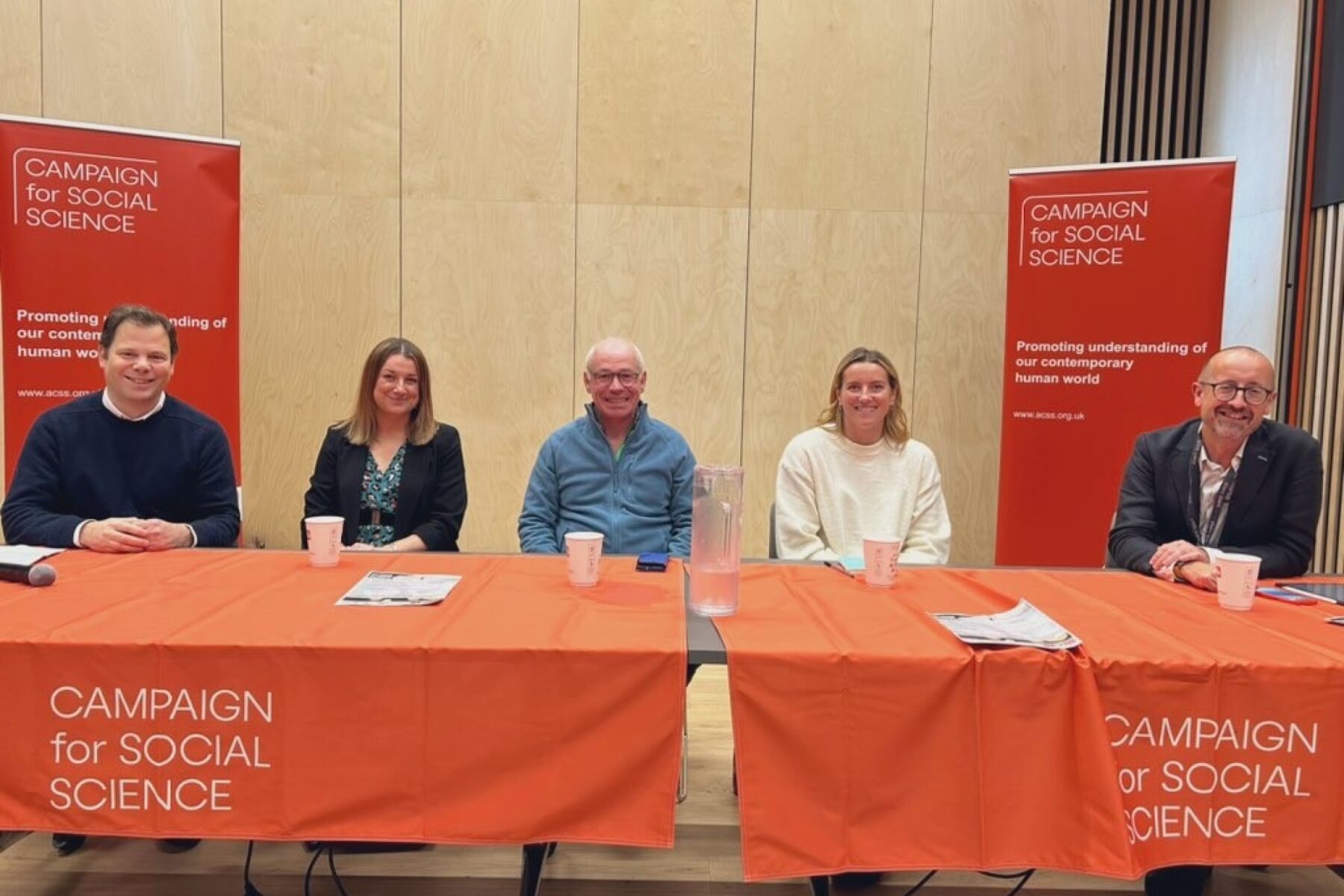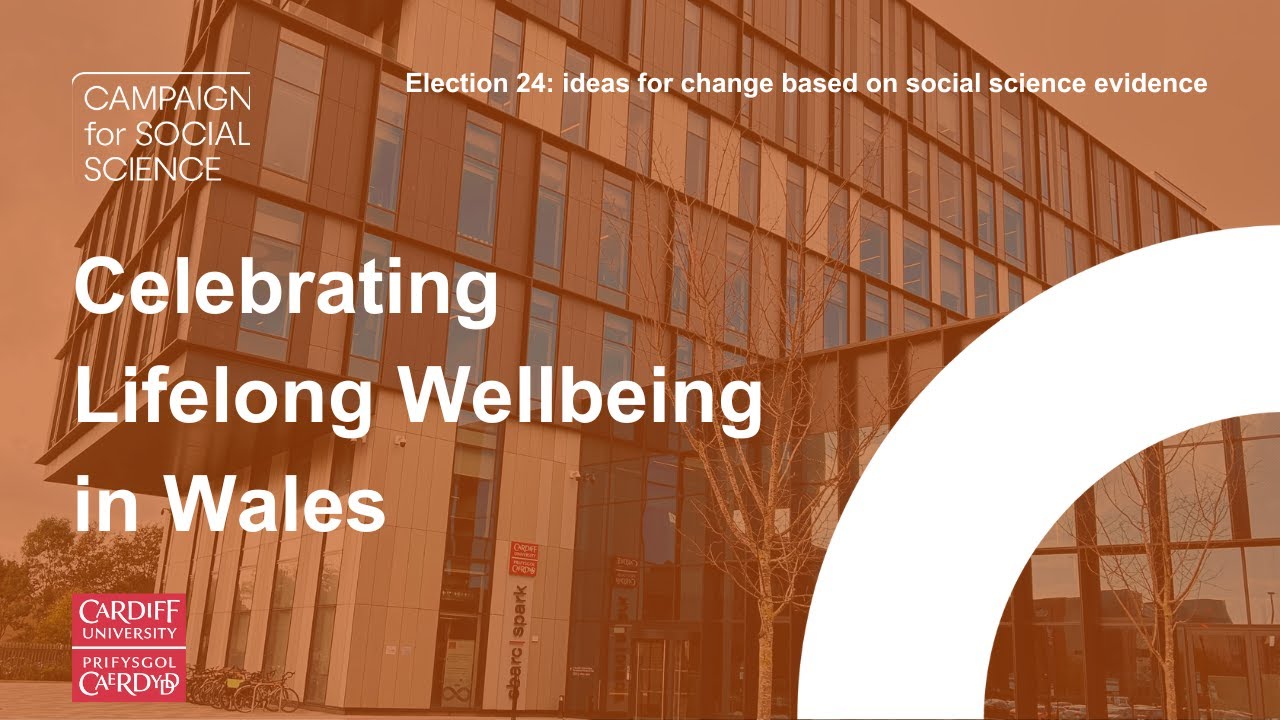Loneliness is a tangible, fixable problem, and one that has received increasing attention in the wake of the pandemic because of changes to how we have lived our lives.
On 26 October 2023, the Academy, in partnership with Cardiff University, co-hosted a panel discussion examining how public policy might do more to uplift the collective wellbeing of Wales. As part of ESRC’s 2023 Festival of Social Science, the panel, chaired by Professor Chris Taylor (Cardiff University), explored issues around loneliness and isolation, including young people’s mental wellbeing, the impact of the Wellbeing of Future Generations Act in Wales, how emerging policies like Universal Basic Income (UBI) might play a role in shifting the dial on wellbeing, and what Wales’ business community are doing to contribute to communities.
Professor Stephan Collishaw (Cardiff University), commented on the growing problem of young people’s mental ill-health and the impact of social media, both positive and negative, on young people’s wellbeing. He highlighted that any policy aimed at young people needs to reflect that social media is already a significant part of young people’s lives and should start with effective measurement.
Stephan said, “It’s about measurement. We need to be thinking about the quality of time spent online. What you are doing when you are online and what you are exposed to. We wouldn’t ask young people, how much time do you spend outside the door, you would ask what are your friendships like, what are you getting up to, and so forth. So, we need better measurement of the quality of young people’s online environments.”
Beth Cummings (Swansea University) drew on her research on the responsibilities of business to be purposeful and the impact this has on wellbeing in society. She also touched on how interventions, like the Wellbeing of Future Generations Act, has provided a legal framework about how the government expects businesses to contribute to their communities.
Beth said, “Support-wise and how we move forward, is this an opportunity to seek out communities and put things in place, from a work perspective, to spend time communicating and connecting with no other agenda? From a business perspective, we more often than not measure outcomes; what we have achieved, what we have delivered, what were the latest sales figures. So, perhaps we lose some of these [community] elements, and maybe, there’s more of a cultural shift [that’s required].”
Dr Hefin Gwilym (Bangor University) raised ideas from his work into the efficacy of Universal Basic Income and drew examples from studies across the world about how this could impact on wider wellbeing, including Wales’ pilot Basic Income scheme for care leavers. He also commented on social policy and service provision more broadly, and the impact of COVID-19 lockdowns and isolation on young people’s mental health – especially those from poor socio-economic backgrounds.
Hefin said, “The foundation years [in childhood] are so crucial. If you are poor in childhood, you are likely to be poor in adulthood too. If you are ill in childhood, you are likely to be ill in adulthood too. To break those cycles is very difficult, and the answer is not always to give higher state benefits, sometimes the answer is to invest in things like family centres and youth centres. Otherwise, social mobility is just going to be a myth.”
Finally, Dr Fern Davies (Swansea University) highlighted how small firms, which make up a disproportionately high segment of Wales’ businesses, are particularly good at acting in community orientated and socially responsible ways, but they often do so under the radar.
She said, “When we did research with small businesses [in Wales] we realised that they are engaging with a lot of work that is contributing to communities and society.
“It’s not that this isn’t happening, it seems to be that there is this mismatch when it comes to the potential impact of SMEs [small and medium-sized enterprises] and larger businesses. They are all engaging and contributing in some way, but what we found was that smaller businesses were doing silent sunken CSR [corporate social responsibility], so it was kind of part of their everyday life.
“There is research to suggest that SMEs tend to walk the walk but not necessarily talk the talk.”
The panellists agreed that investing in young people’s mental health tends to lead to healthier, happier adults, and that working with businesses to embed social responsibility into their strategies and planning is an important element of building broader community wellbeing.
Watch the recording below to hear more from our speakers.

